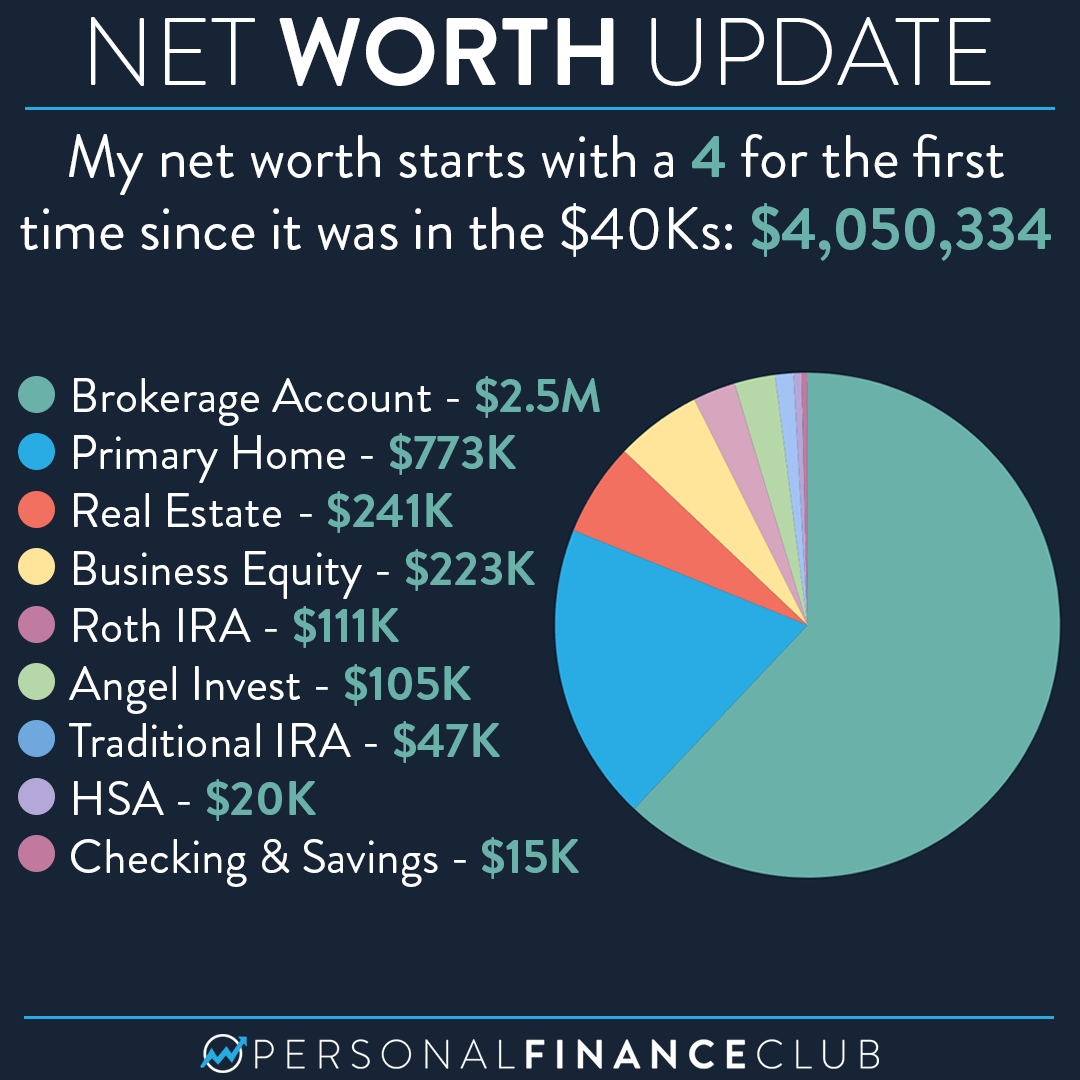Building a financial base that truly stands strong, like a sturdy rock, is something many people hope for, and it's certainly within reach. It's not just about having a lot of money; it's about having a financial structure that can handle life's ups and downs, keeping you steady. A solid net worth means you have a reliable foundation, allowing you to feel more secure and less worried about money matters, which is that, a pretty big deal for peace of mind.
Thinking about your finances in this way, like building something durable, helps to shift your perspective from just earning money to truly securing your future. It's a long-term project, you know, and it requires consistent effort and smart choices. This idea of a "net worth rock" is about creating something that lasts, something you can depend on, and it's more than just a number on a statement.
So, we'll explore what it takes to cultivate this kind of financial strength, looking at ways to build it, maintain it, and keep it secure. It's about setting up your financial life so it feels truly robust, giving you a sense of calm and control over what comes next. This approach, honestly, can make all the difference in how you feel about your money.
- La Fonda Santa Fe
- Why Is My Instagram Not Working
- How Do You Deactivate Your Instagram Account
- Snohomish Valley Golf Center
- Maxs South Seas Hideaway
Table of Contents
- Understanding Your Financial Foundation
- The Importance of Regular Financial Updates
- Fixing Financial "Bugs" and Improving Reliability
- Securing Your Financial Network
- Clearing Up Financial Confusion
- Proactive Versus Reactive Financial Planning
- Guarding Your Financial Identity
- Frequently Asked Questions
Understanding Your Financial Foundation
To start building your "net worth rock," you really need to get a clear picture of where you stand financially. This means knowing what you own, like savings accounts, investments, and property, and also what you owe, such as loans, credit card balances, and mortgages. It's a simple calculation, assets minus liabilities, but it gives you that baseline figure, you know, your current net worth.
This initial look is a lot like checking the current version of a software system before an upgrade. You need to see what's there, what's working, and what might need attention. It helps you understand the starting point for your financial journey, and it's a very important first step for anyone wanting to build something lasting. Without this clarity, it's pretty hard to make good decisions about where to go next.
Knowing your financial numbers isn't just for accountants; it's for everyone. It helps you track progress, identify areas where you might be losing money, or places where you could grow your wealth more effectively. So, take the time to gather all your financial information, get it organized, and truly see your financial landscape for what it is. It's a powerful way to begin.
- The Violet Hour Chicago
- Fat Bastard Austin Powers
- Forest Creek Golf Club
- Ivy Rehab Physical Therapy
- How To Unfollow On Instagram
The Importance of Regular Financial Updates
Just like how software systems, such as .NET 8.0, get refreshed with the latest updates to keep things running smoothly, your financial plans need regular attention and adjustments. Life changes, after all, and your financial situation will too. Maybe your income shifts, or your expenses go up, or you have a new goal, like saving for a house or retirement. These moments call for a fresh look at your money plan.
Regularly reviewing your budget, your savings goals, and your investment choices is a bit like applying those servicing updates that remove previous versions upon successful installation. You're constantly refining, letting go of old strategies that no longer serve you, and bringing in new, more effective ones. This isn't a one-time thing; it's an ongoing process that helps your financial "rock" stay strong and relevant.
Setting aside time each month or quarter to check in with your money is incredibly helpful. Look at your spending, see if you're hitting your savings targets, and review your investment performance. This consistent review helps you catch small issues before they become big problems and ensures your financial path is still aligned with your dreams. It's a very practical habit to cultivate.
Fixing Financial "Bugs" and Improving Reliability
Sometimes, even the best systems have little "bugs" that need fixing, like the ASP.NET caching initialization bug or the ComboBox text selection issue mentioned in the .NET Framework updates. In your financial life, these "bugs" might be things like impulse spending, forgotten subscriptions, or unexpected fees that chip away at your money. Spotting and fixing these small leaks is crucial for financial health.
These updates also bring security and cumulative reliability improvements, making the system more robust. For your finances, this translates to building an emergency fund, getting proper insurance, and diversifying your investments. These steps act as protective layers, helping your "net worth rock" withstand unforeseen events, like a sudden job loss or a medical emergency. It's about making your money truly dependable.
Taking the time to identify where your money might be slipping away or where you're exposed to unnecessary risk is a vital part of this process. Maybe you're paying too much interest on a credit card, or perhaps you don't have enough saved for unexpected costs. Addressing these "bugs" proactively helps to seal up those cracks, making your financial foundation much more secure and reliable, which is, honestly, a huge relief.
Securing Your Financial Network
Think about how containers in a software environment need greater network access or how ports are forwarded from a host machine. Your financial system, in a way, also has a "network" – how your money moves, how you access it, and how it interacts with banks, payment systems, and even other people. Ensuring this "network" is secure and efficient is very important for your "net worth rock."
This means being careful with your online banking, using strong passwords, and being aware of phishing scams. It also involves understanding how your various financial accounts connect and ensuring that money flows smoothly where it needs to go, whether that's to savings, investments, or bill payments. A well-managed financial network prevents disruptions and helps your money work harder for you.
Just as network activity happens when containers share a host's network, your financial activities are constantly interacting with external systems. Protecting your personal information and monitoring your accounts for unusual activity are key parts of this. It's about making sure your financial connections are strong and safe, so your money can move freely and securely without any unwanted interruptions.
Clearing Up Financial Confusion
It's common to feel a bit confused about all the different financial products, terms, and strategies out there, much like someone new to the .NET area might feel overwhelmed by all the versions and explanations. There's so much information, and it can be hard to find a simple, straightforward explanation for how it all fits together. This confusion, you know, can really stop people from taking action.
To build a solid "net worth rock," you need to cut through that noise and gain clarity. This might mean taking the time to learn about different investment types, understanding how taxes affect your money, or simply figuring out the best way to manage your daily spending. It's about finding out what version of financial knowledge you need to have installed in your own mind, so to speak.
Don't be afraid to ask questions or seek out reliable resources. Whether it's reading books, listening to podcasts, or talking to trusted financial advisors, clearing up confusion empowers you to make better choices. When you understand your financial tools and options, you're much better equipped to build and maintain a strong, stable financial foundation, and that, is pretty empowering.
Proactive Versus Reactive Financial Planning
In the world of software, there's often talk about pull versus push duality, like IEnumberable being the dual opposite of IObservable. In finance, this can be seen as the difference between being proactive with your money (pushing it where you want it to go) and being reactive (pulling it out when you need it, often in an emergency). Building a "net worth rock" really leans into being proactive.
Being proactive means setting clear financial goals and creating a plan to reach them, rather than just reacting to bills or unexpected expenses. It's about regularly contributing to savings, making intentional investment choices, and planning for future needs. This approach allows you to direct your money with purpose, rather than letting circumstances dictate your financial moves, which is, a bit like steering your own ship.
For instance, instead of waiting for a crisis to save, you set up automatic transfers to your emergency fund. Instead of just paying minimums on debt, you create a strategy to pay it down faster. This proactive stance, where you're consistently pushing your money towards your goals, is what truly builds a resilient and growing "net worth rock" over time. It's a much calmer way to handle your finances, too.
Guarding Your Financial Identity
Just as in software, where you might need to impersonate a user for certain tasks, in the financial world, protecting your identity is incredibly important. There are people out there who try to "impersonate" you to gain access to your money or credit. This is why safeguarding your financial information is a cornerstone of building and maintaining a secure "net worth rock."
This means being vigilant about where you share your personal details, regularly checking your credit reports for any unusual activity, and being cautious about unsolicited requests for information. It's about making sure that every financial action taken in your name is truly authorized by you, and not by someone trying to take advantage. This vigilance, honestly, protects your hard-earned assets.
Having strong passwords, using two-factor authentication, and being aware of common fraud tactics are all part of this defense. It's like having a robust security system for your financial life. By taking these steps, you ensure that your "net worth rock" remains yours, untouched by those who might try to undermine it. It's a very important layer of protection for your financial peace.
Frequently Asked Questions
What is a good net worth?
A "good" net worth really depends on your age, income, and life goals, you know, so it's not a one-size-fits-all number. For someone just starting out, a positive net worth, even a small one, is a great sign. As you get older, and perhaps your career progresses, your net worth typically grows. It's more about consistent progress and building a solid foundation over time than hitting a specific number right away.
How do I calculate my net worth?
Calculating your net worth is pretty simple, actually. You just list everything you own that has value, like money in bank accounts, investments, real estate, and even valuable possessions. Then, you list everything you owe, such as credit card debt, student loans, and mortgages. Subtract what you owe from what you own, and that's your net worth. It's a very clear snapshot of your financial standing at any given moment.
How can I increase my net worth quickly?
Increasing your net worth quickly often involves a combination of earning more and spending less, and maybe, making smart investment choices. While there's no magic bullet, reducing debt aggressively, boosting your income through a side hustle, or investing wisely in assets that appreciate can help. It's usually a consistent effort over time that yields the best results, rather than trying to rush things.
Building a "net worth rock" is truly about consistent, thoughtful action, much like the ongoing maintenance and improvements that keep complex systems running smoothly. It's a journey of learning, adapting, and making choices that strengthen your financial position over time. Keep reviewing your financial picture, fixing any little issues, and always look for ways to secure your money's future. You can learn more about building financial stability on our site, and we have more insights on personal finance strategies that might help you.
- Jw Marriott Savannah Plant Riverside District
- Ferns And Petals India
- Green Meadows Farm Brooklyn
- How To Unfollow On Instagram
- Texas Roadhouse Mini Rolls



Detail Author:
- Name : Ms. Dawn Simonis
- Username : mspinka
- Email : rowena24@hotmail.com
- Birthdate : 1990-08-14
- Address : 94921 Diego Ridges New Felicity, OR 91310
- Phone : 832.760.6414
- Company : Kuhn, Ruecker and Mann
- Job : Chemical Engineer
- Bio : Incidunt ut voluptatem sint sunt at ad ad officiis. A quasi culpa cupiditate accusantium animi adipisci rerum quis. Delectus odit totam error cupiditate. Commodi ut sunt sint doloribus quibusdam.
Socials
facebook:
- url : https://facebook.com/jules_rohan
- username : jules_rohan
- bio : Ratione consequatur quo fugit repellendus architecto qui nostrum porro.
- followers : 726
- following : 1428
tiktok:
- url : https://tiktok.com/@rohan2018
- username : rohan2018
- bio : Illo dolorum omnis earum. Saepe adipisci voluptatem error iure est.
- followers : 5543
- following : 1777
twitter:
- url : https://twitter.com/julesrohan
- username : julesrohan
- bio : Natus perferendis ut et officia. Suscipit at hic non. Nostrum eius dolor quibusdam sunt in. Et amet sit molestiae nostrum fugiat eveniet minus.
- followers : 4869
- following : 445

